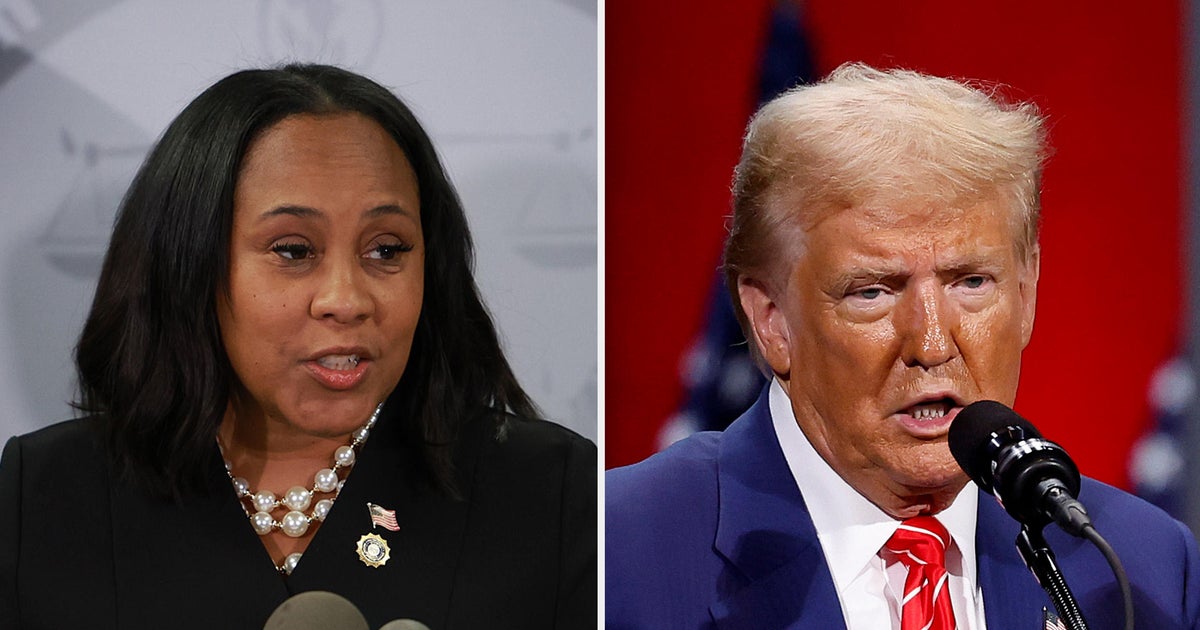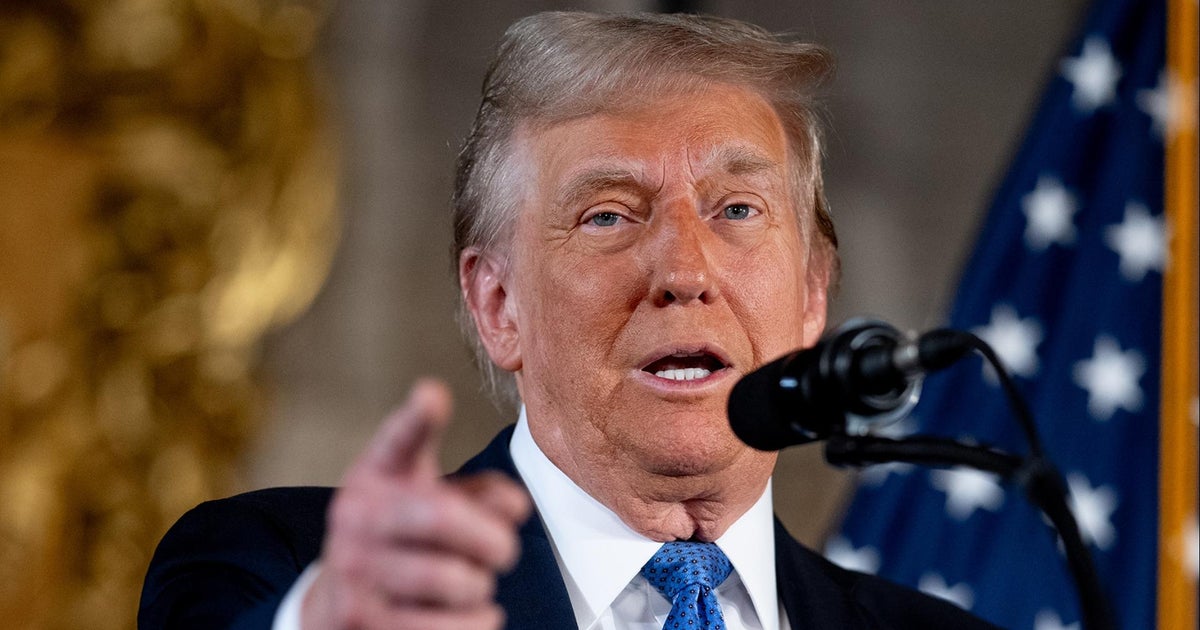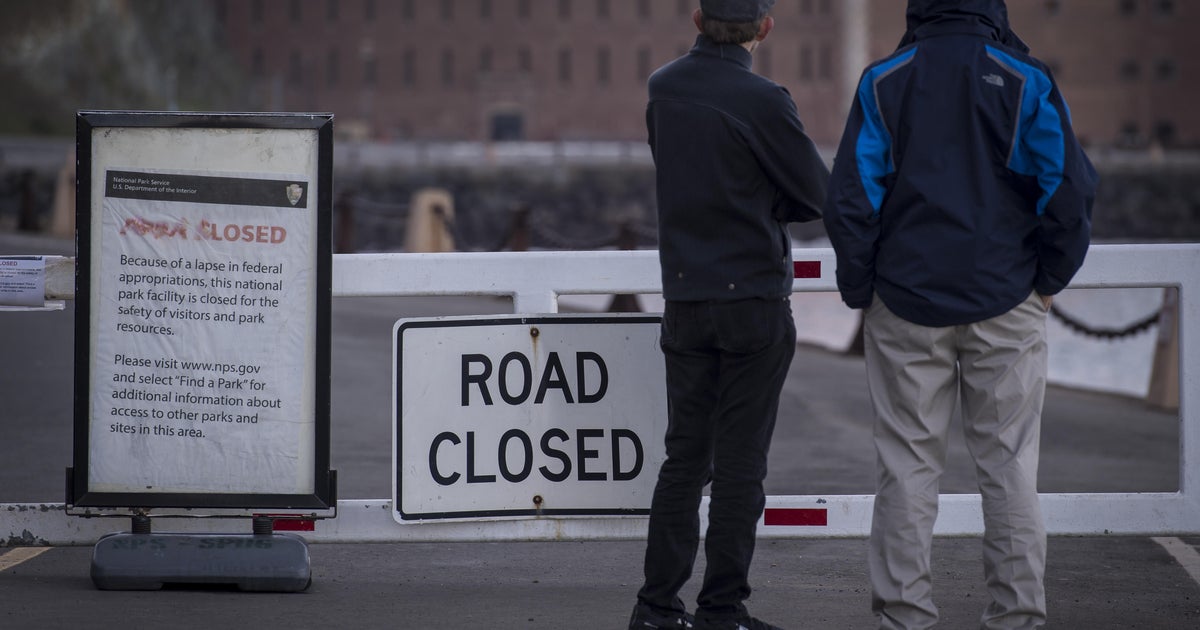Possible targets in Fulton County investigation of Trump, allies may try to quash charges
Lawyers close to several Republican witnesses in the Fulton County investigation into post-election interference by former President Donald Trump and his allies are preparing to move to quash any possible indictments by the district attorney, Fani Willis.
Their attempt to do so would be based on recent public statements by the forewoman of a special purpose grand jury, Emily Kohrs, according to two people familiar with the discussions who spoke with CBS News.
The special purpose grand jury served as an investigatory body that could recommend charges but could not indict. Willis is now deciding whether to pursue charges and open a "regular" criminal grand jury, to seek possible indictments against Trump or others based on the special grand jury's recommendations, compiled in a report it made following the completion of its work.
She has not yet decided whether to pursue charges and has only said a decision on how to proceed is "imminent."
If she were to pursue charges, lawyers for several witnesses are preparing to move to quash indictments, based on the forewoman's comments, which they would argue taint any such charges and the investigation.
CBS News legal analyst Rikki Klieman says it's inappropriate for Kohrs to have commented, but she believes it will make no legal difference, since Willis will make her own decision, and a new grand jury will be seated to issue any indictments.
Kohrs is prohibited from sharing any information from the special grand jury's deliberations, and she does not appear to have done so, Klieman observed. However, some legal concerns may arise if she or other grand jurors disclose any of the deliberations.
Kohrs said the panel recommended more than a dozen indictments at the conclusion of its investigation into post-election interference by former President Donald Trump and his allies, though she declined in multiple interviews with news outlets to say whether the grand jury had recommended charges against Trump.
She also said the grand jury's report, which was turned over to Fulton County District Attorney Fani Willis, recommended indictments on a variety of charges. Seven of the reports' eight sections remain sealed – on Feb. 16, a judge ordered the release of the report's introduction, conclusion and eighth section, in which the grand jurors recommended Willis' office consider perjury indictments against one or more of the 75 witnesses it heard from last year.
Kohrs declined to name anyone the grand jury recommended for indictment. Asked by the New York Times if Trump himself might be indicted, Kohrs replied, "You're not going to be shocked. It's not rocket science."
She said the grand jury decided not to interview Trump, though his name was frequently brought up.
"I will tell you that it was a process where we heard his name a lot," Kohrs said on CNN Tuesday. "We definitely heard a lot about former President Trump, and we definitely discussed him a lot in the room. And I will say that when this list comes out, you wouldn't -- there are no major plot twists waiting for you."
Despite the focus on Trump, Kohrs told the Associated Press the grand jury decided it did not need to call him as a witness.
"Trump was not a battle we picked to fight," Kohrs said.
Trump, on Truth Social, criticized Kohrs for the interviews she had given.
"Now you have an extremely energetic young woman, the (get this!) 'foreperson' of the Racist D.A.'s Special Grand Jury, going around and doing a Media Tour revealing, incredibly, the Grand Jury's inner workings & thoughts," he wrote. "This is not JUSTICE, this is an illegal Kangaroo Court. Atlanta is leading the Nation in Murder and other Violent Crimes."
In her interview with the Associated Press, Kohrs said she found the testimony of a former Dominion Voting Systems executive, about how voting machines worked, fascinating.
The grand jury was empaneled in early May 2022, hearing evidence and receiving information from June 1 through December. In the introduction to its report, the panel said it found that there was not "widespread fraud" that could have overturned the presidential election.
Willis' office has indicated in court filings that others have faced scrutiny in the probe, including a group of 16 Georgia Republicans who participated in an alternate elector scheme and former Trump attorney Rudy Giuliani.
Kohrs told the Associated Press that Giuliani invoked privilege and did not answer many questions.




